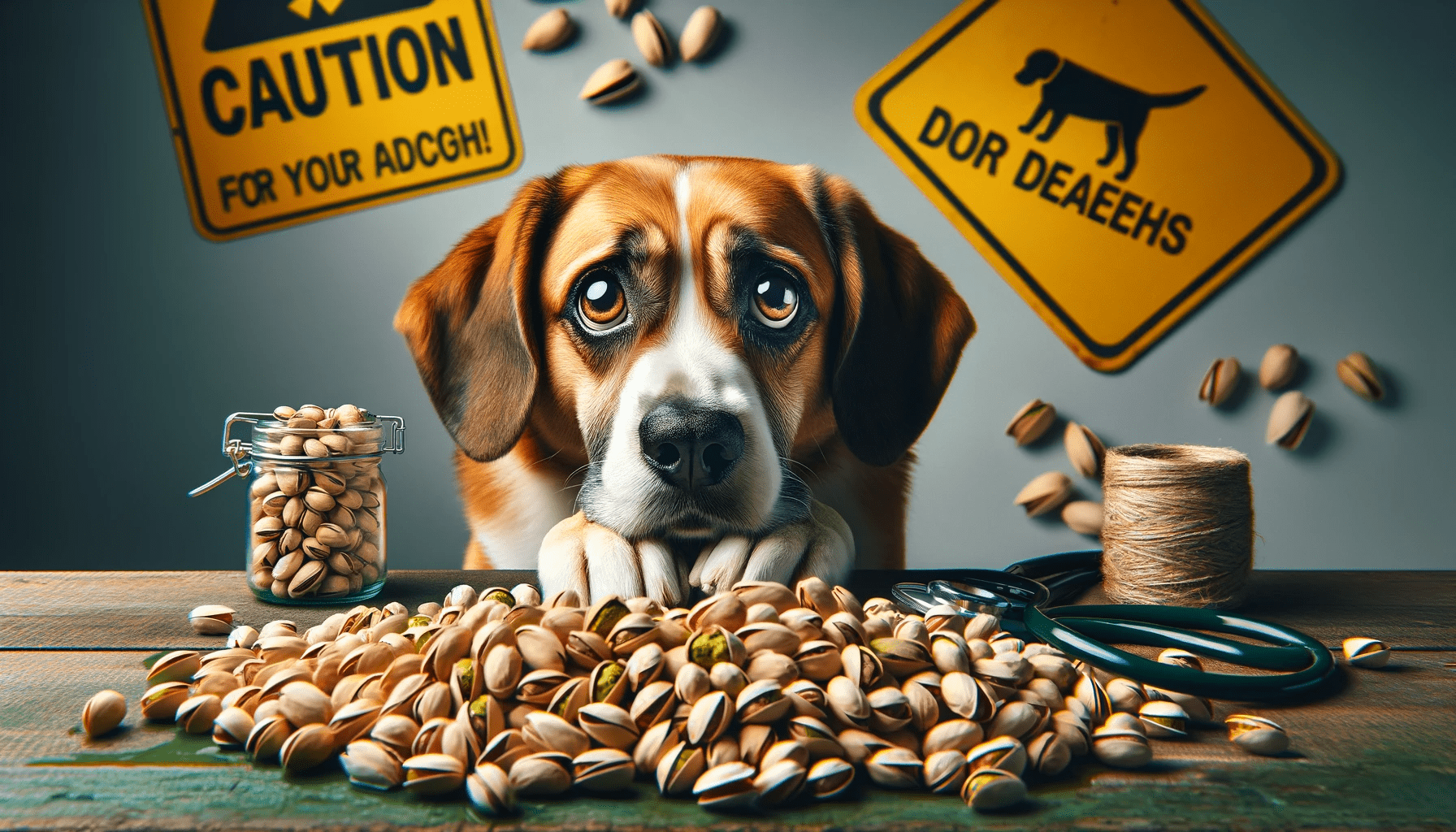Are you looking to provide your furry friend with the best nutrition possible? Look no further!
In this comprehensive guide, we'll walk you through everything you need to know about optimal dog nutrition. From understanding their nutritional requirements to evaluating commercial dog food brands, we've got you covered.
Discover essential nutrients, identify common allergens, and even explore homemade recipes and supplements.
Get ready to take your dog's diet to the next level for their overall health and well-being.
Key Takeaways
- Choose a dog food brand that meets your dog's specific dietary needs and avoids ingredients they are sensitive to.
- Consider the nutritional value of different brands by looking for high-quality protein sources, balanced ratios of carbohydrates and fats, and no artificial additives or fillers.
- Identify common dog food allergens and avoid them if your dog has known food allergies.
- If considering a raw food diet, consult with a veterinarian for guidance, choose high-quality meats from trusted sources, and follow proper food safety guidelines.
Understanding Nutritional Requirements
To ensure your dog's health and well-being, it's crucial for you to understand the nutritional requirements they need. One important aspect of dog nutrition is being aware of their food sensitivities. Just like humans, dogs can have sensitivities or allergies to certain ingredients in their food. Common food sensitivities in dogs include grains, dairy, and certain proteins like beef or chicken. It's important to carefully read the labels and choose a dog food that meets their specific dietary needs. If your dog has a known food sensitivity, it's best to avoid foods that contain those ingredients to prevent any adverse reactions.
Another key aspect of dog nutrition is portion control. It's essential to feed your dog the appropriate amount of food to maintain a healthy weight. Overfeeding can lead to obesity, which can have detrimental effects on your dog's overall health. On the other hand, underfeeding can result in nutrient deficiencies and malnourishment. The amount of food your dog needs will depend on factors such as their age, weight, activity level, and breed. It's best to consult with your veterinarian to determine the right portion size for your dog. They can provide guidance based on your dog's individual needs and make recommendations for any necessary adjustments.
Understanding your dog's nutritional requirements is vital for their overall health and well-being. By being aware of their food sensitivities and practicing portion control, you can ensure that your furry friend receives the proper nourishment they need to thrive.
Evaluating Commercial Dog Food Brands
When evaluating commercial dog food brands, there are two key points to consider: ingredient quality standards and nutritional value comparison.
Ingredient quality standards refer to the sourcing and processing methods used for the ingredients in the food, ensuring they meet specific standards for safety and quality.
Nutritional value comparison involves analyzing the nutrient composition of different brands to determine which one provides the optimal balance of proteins, fats, carbohydrates, and essential vitamins and minerals for your dog's specific needs.
Ingredient Quality Standards
You can evaluate commercial dog food brands by examining the quality standards of their ingredients. Ingredient sourcing is an important aspect to consider when evaluating the quality of dog food. Look for brands that prioritize using high-quality and responsibly sourced ingredients. This means that the ingredients used in the dog food should come from reputable suppliers and be free from contaminants and adulterants.
Additionally, regulatory standards play a crucial role in ensuring the safety and quality of dog food. Look for brands that meet or exceed the regulatory standards set by organizations such as the Association of American Feed Control Officials (AAFCO). These standards ensure that the dog food is nutritionally balanced and safe for consumption.
Nutritional Value Comparison
Compare the nutritional value of commercial dog food brands to ensure you're providing your dog with optimal nutrition. When evaluating different brands, it's important to consider the nutritional benefits and whether they meet your dog's dietary requirements.
Look for dog foods that contain high-quality protein sources, such as chicken, beef, or fish, as they provide essential amino acids for muscle development and maintenance. Additionally, check for a balanced ratio of carbohydrates and fats to provide energy and support overall health.
It's also crucial to examine the ingredient list for any artificial additives or fillers that may not contribute to your dog's well-being. Remember, each dog has unique nutritional needs, so consult with your veterinarian to determine the best commercial dog food brand for your furry friend.
Essential Nutrients for Dogs
To ensure your dog's health and well-being, it's vital to provide them with a balanced diet that includes a variety of essential nutrients. Dogs have a unique digestive system that allows them to efficiently break down and absorb nutrients from their food. Understanding canine digestion and nutrient absorption is crucial in determining the optimal diet for your furry friend.
Here are three essential nutrients that play a significant role in your dog's overall health:
- Protein: Dogs are carnivores by nature, and protein is essential for their growth and development. It provides the necessary amino acids for muscle repair, immune function, and hormone production. High-quality sources of protein include meat, fish, and eggs.
- Carbohydrates: While dogs primarily require protein, carbohydrates are also important for energy. However, unlike humans, dogs don't have a dietary requirement for carbohydrates. It's best to provide complex carbohydrates, such as whole grains and vegetables, which offer fiber and other beneficial nutrients.
- Fats: Fats are a concentrated source of energy and support various bodily functions. They aid in nutrient absorption, provide insulation, and contribute to healthy skin and coat. Including healthy fats from sources like fish oil and flaxseed in your dog's diet is beneficial.
Identifying Common Dog Food Allergens
To identify common dog food allergens, start by examining the ingredients list on the packaging. Dog food allergens are substances that can cause an allergic reaction in dogs, resulting in symptoms such as itching, digestive issues, and skin problems. It's important to be aware of these allergenic ingredients to ensure the health and well-being of your furry friend.
Common allergenic ingredients found in dog food include beef, chicken, dairy, eggs, soy, wheat, and corn. These ingredients have been known to trigger allergic reactions in some dogs. Additionally, artificial additives, such as food coloring and preservatives, can also contribute to allergies.
When reading the ingredients list, look for specific proteins or grains that your dog may be sensitive to. If your dog has a known food allergy, it's crucial to avoid these ingredients completely.
If you suspect your dog has a food allergy, you can try an elimination diet. This involves feeding your dog a limited ingredient diet with novel protein and carbohydrate sources to identify the specific allergen. Consult with your veterinarian for guidance and support during this process.
Raw Food Diet for Optimal Nutrition
If you're looking for a natural and nutrient-rich option for your dog's diet, consider incorporating a raw food diet for optimal nutrition. Raw food diets have gained popularity in recent years due to the numerous benefits they offer.
Here are some key benefits of feeding your dog a raw food diet:
- Improved Digestion: Raw food diets are easier for dogs to digest compared to processed kibble. This is because raw food contains natural enzymes and beneficial bacteria that aid in the breakdown of food.
- Enhanced Dental Health: Chewing on raw meaty bones helps to naturally clean your dog's teeth and gums, reducing the risk of dental diseases such as gum inflammation or tooth decay.
- Shinier Coat and Healthier Skin: Raw food diets are rich in essential fatty acids, which promote a healthy coat and skin. These fatty acids help reduce itchiness, dryness, and flakiness.
When considering a raw food diet for your dog, it's important to prioritize their safety. Here are some guidelines to ensure the safety of raw feeding:
- Quality Sourcing: Choose high-quality, human-grade meats from trusted sources to minimize the risk of bacterial contamination.
- Proper Handling and Storage: Raw food should be handled with care to prevent cross-contamination. It should also be stored in appropriate containers at the correct temperature to prevent the growth of harmful bacteria.
- Consult with a Veterinarian: Before starting your dog on a raw food diet, consult with your veterinarian to ensure that it meets all their nutritional needs and to address any specific health concerns.
Homemade Dog Food Recipes
When making homemade dog food recipes, it's important to ensure that you're providing your furry friend with a balanced and nutritious meal. To maintain the quality and safety of the food, proper dog food storage and portion control are crucial factors to consider.
Firstly, dog food storage plays a significant role in preserving the freshness and nutritional value of homemade meals. It's recommended to store the food in airtight containers, preferably made of glass or BPA-free plastic, to prevent moisture and air exposure. Keep the containers in a cool, dry place away from direct sunlight. Additionally, it's essential to regularly check the expiration dates of any ingredients used and discard anything that has gone bad.
Secondly, portion control is vital to ensure your dog receives the right amount of nutrients without overeating. Consult with your veterinarian to determine the appropriate portion size based on your dog's age, weight, activity level, and overall health. Use a kitchen scale to accurately measure the food and divide it into individual servings. This helps prevent obesity and ensures that your dog receives a well-balanced diet.
Supplements for Dog Nutrition
Now, let's talk about the importance of supplements in ensuring your dog's optimal nutrition.
Necessary nutrient supplements play a crucial role in supporting your dog's overall health and well-being. These supplements can provide potential benefits such as improved joint health, enhanced immune function, and better skin and coat condition.
It's essential to understand the appropriate dosage and administration of these supplements to ensure maximum effectiveness and safety for your furry companion.
Necessary Nutrient Supplements
To ensure your dog receives optimal nutrition, it's important to regularly supplement their diet with necessary nutrients. While a balanced diet is crucial, certain nutrient supplements can address specific needs and enhance their overall health.
Here are three sub-lists of necessary nutrient supplements for your dog:
- Omega-3 Fatty Acids: These supplements help support a healthy coat, reduce inflammation, and promote brain function. Recommended dosages vary depending on the size and breed of your dog. Potential side effects may include diarrhea or vomiting, but these are rare.
- Probiotics: Probiotic supplements aid in digestive health and can improve nutrient absorption. Dosages depend on the specific product and your dog's needs. Side effects are typically mild, such as gas or bloating, and usually subside after a few days.
- Joint Supplements: These supplements are beneficial for dogs with joint issues or arthritis. Glucosamine and chondroitin are commonly used to promote joint health. Dosages depend on your dog's size and condition. Side effects are rare, but can include upset stomach or allergic reactions.
Potential Health Benefits
Continue supporting your dog's overall health by exploring the potential health benefits of supplementing their diet with nutrient supplements.
While a balanced diet is crucial for your dog's well-being, certain supplements can provide additional benefits. For example, omega-3 fatty acids have been shown to improve joint health and reduce inflammation, making them beneficial for dogs with arthritis.
Probiotics can promote a healthy gut microbiome, aiding digestion and boosting the immune system. Antioxidants like vitamin E and C can help protect against cellular damage caused by free radicals.
It's important to note that while these supplements offer potential health benefits, they should be used under the guidance of a veterinarian. Additionally, it's vital to consider potential health risks and long-term effects, as excessive supplementation can lead to imbalances or toxicity.
Always consult with a professional to determine the right supplements for your dog's specific needs.
Dosage and Administration
To ensure proper dosage and administration of supplements for your dog's nutrition, it's important to follow the guidelines provided by your veterinarian. They'll take into account your dog's specific needs, size, and health condition to recommend the appropriate dosage.
Here are some general dosage recommendations and proper administration techniques to keep in mind:
- Dosage Recommendations:
- Start with the lowest recommended dose and gradually increase if necessary.
- Follow the manufacturer's instructions for dosage based on your dog's weight.
- Consult your veterinarian for specific dosage guidelines for different supplements.
- Proper Administration Techniques:
- Administer supplements with food to enhance absorption.
- Use the recommended form of the supplement (e.g., capsules, liquid, powder).
- Keep a consistent schedule for giving supplements to your dog.
Transitioning to a New Dog Food Diet
Start by gradually introducing the new dog food into your pet's diet. Transitioning to a new dog food diet requires a careful approach to avoid upsetting your pet's digestive system. Sudden changes can lead to gastrointestinal issues such as diarrhea and vomiting. To smoothly transition your furry friend, follow these transitioning tips.
Firstly, it's important to introduce new ingredients gradually. Begin by mixing a small amount of the new food with your dog's current food. This allows your pet to gradually become accustomed to the new flavors and textures. Over the course of 7-10 days, gradually increase the proportion of the new food while decreasing the old food. This slow transition gives your dog's digestive system time to adjust and minimizes the chances of digestive upset.
Additionally, pay close attention to your pet's response during the transition phase. Monitor their stools for any signs of digestive issues. If your dog experiences loose stools or other gastrointestinal problems, slow down the transition process and give them more time to adjust to the new food. It's also essential to provide plenty of fresh water during this period to aid digestion.
Frequently Asked Questions
Can I Feed My Dog a Vegetarian or Vegan Diet?
Yes, you can feed your dog a vegetarian or vegan diet. There are vegetarian dog food options available that provide all the necessary nutrients. However, ethical considerations should be taken into account when making this dietary choice.
How Do I Know if My Dog Has a Food Allergy?
If your dog shows signs of food allergies such as itching, vomiting, or diarrhea, it's important to consult with your veterinarian. They can help you determine the specific allergen and guide you on how to manage your dog's food allergies.
What Are the Potential Risks of Feeding My Dog a Raw Food Diet?
Feeding your dog a raw food diet poses potential risks such as bacterial contamination and nutrient deficiencies. Bacteria like Salmonella and E. coli can be present in raw meat, while an unbalanced diet may result in vitamin and mineral deficiencies.
Are There Specific Supplements That Are Recommended for Puppies?
There are specific supplements recommended for puppies to ensure their optimal growth and development. These puppy supplements often include vitamins, minerals, and omega-3 fatty acids, which support their immune system, bone health, and cognitive function.
How Long Should I Take to Transition My Dog to a New Food Diet?
When transitioning your dog to a new food diet, it is best to do it gradually over a period of 7-10 days. This allows their digestive system to adjust and reduces the chances of digestive upset. Rushing the transition can lead to common mistakes like diarrhea or vomiting.
Conclusion
In conclusion, providing optimal nutrition for your dog is essential for their overall health and well-being. Understanding their nutritional requirements and evaluating commercial dog food brands can help ensure they receive the necessary nutrients.
Identifying common allergens and considering a raw food diet or homemade recipes can also contribute to their optimal nutrition. Additionally, supplements can be beneficial in supporting their nutritional needs. Remember to gradually transition to a new diet to avoid digestive issues.
By prioritizing your dog's nutrition, you're taking proactive steps towards their long-term health.






